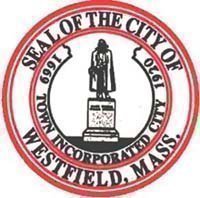 WESTFIELD – Two proposals for a supplemental budget were brought by Mayor Donald F. Humason, Jr. for immediate consideration to the City Council during a special meeting Dec. 10.
WESTFIELD – Two proposals for a supplemental budget were brought by Mayor Donald F. Humason, Jr. for immediate consideration to the City Council during a special meeting Dec. 10.
The first proposal was to appropriate $4.5 million, including $1 million for capital projects in the schools to upgrade the science labs at Westfield High School and Westfield Technical Academy; make needed repairs to the swimming pool at Westfield High School, and upgrade two labs at Westfield Technical Academy. The proposal also included $100,000 to go into the Other Post Employee Benefit account, and the remainder of $3.4 million into stabilization. Originally, $1 million was to go for sidewalks and roads, but the mechanics for a stabilization fund for that purpose were not in place, and the money was moved to the stabilization fund.
The second proposal on the agenda was to put $5 million into stabilization.
During the discussion on the first proposal, Ward 2 Councilor Ralph J. Figy, chair of finance, said in April and May when Fiscal Year 2021 budget discussions began, all of the recommendations coming out of Boston and state auditors’ associations suggested a 10-11 percent cut in local aid from the state. “As a result, the budget that we passed had a lot of hurt in it,” Figy said.
Figy said the general court then decided this month to level fund local aid to towns and communities. “Therefore, the reduction we took back in May was negated, which allowed a surplus of budgeted funds. The money is not in the bank yet, but it’s on the doorstep. Both houses of general court approved these numbers, which put us in the unusual position of having more money than we budgeted for. It’s my understanding that if we don’t appropriate these funds, we won’t have access to them, and they might end up in Free Cash next year,” he said.
Figy said the $3.4 million being proposed for the stabilization fund was being made “with the understanding if we have a project that needs to be funded, we can vote on it from stabilization and fund that project.”
At-large Councilor Richard K. Sullivan Jr. said the city was working off an estimate from the former auditor working with the mayor and council. “I thought that estimate was wrong then. It sets up a situation where we as a council have to make quick decisions. We were not allowed the luxury of that robust discussion. A similar thing will happen with Free Cash,” he said, adding that “the fact that we had bad budget decisions back then, does not help the council or the city make smart budget decisions.”
Sullivan said overlaying the discussion at this meeting would be a decision at the two meetings immediately following, to positively affect residents with a favorable tax shift and tax rate.
At-large Councilor Dave Flaherty took issue with Sullivan’s characterizations of the decisions made earlier in the year. “At budget time, we have to do what is right at the time,” he said, adding that not only Westfield’s auditor but many other auditors assumed a reduction of 10 percent in local aid. “That didn’t happen because the state drained its stabilization account. We may not get that next year,” Flaherty said.
Flaherty added that Westfield also had “massive new growth” this year, and credited the assessment team and development officers who over the years brought in a lot of new business.
“I’m not that excited about spending a million dollars on a wish list. We could certainly do it later in the year when we have more time to deliberate on how to appropriate and spend more time. These appropriations were thrown together last Friday,” Flaherty said, saying there are all sorts of different science labs. “I’m going to be a no on that. Me, personally, I think we should put this money into stabilization,” he said.
Figy said there is a plan in place for the school projects that have been on the radar for a long time with no funding sources, and in the case of the science labs, negatively impact school accreditation.
“I’m going to keep it a lot more simple than Councilor Flaherty just described. We’re under immediate consideration, and before me is $1 million for the schools. I’m definitely a no on giving a million dollars. I’m all for supporting the schools and students in Westfield. It certainly needs more discussion than a quick vote,” said At-large Councilor Nicholas J. Morganelli Jr.
“Us allocating the money isn’t spending it, there’s a lot in the six months that needs to happen. This is just putting it in that account,” said Council President Brent B. Bean II, adding that since the vote was under immediate consideration, one no vote would end it. However, he said he would like to continue the discussion.
At-large Councilor Kristen Mello asked if all of the department heads had been polled as to their needs. “RIght now, we’ve got two options on an agenda. I absolutely want to support projects in the school. If everyone in the city took a hit to allow us to meet the budget, I’m concerned that we don’t give the other departments and public a chance to weigh in,” she said, adding whether putting the money into stabilization would really “mess up the opportunity for the schools three weeks down the line.”
Figy said it was more a matter of allowing the process to go forward. “All of these projects except the two at the Tech need to have bids go out, (which means a) time crunch. It’s going to be harder to spend the money out of stabilization because you can’t go out to bid for a project if you don’t have the money for it,” he said.
At-large Council Dan Allie asked whether putting the funds into stabilization would adversely affect the city with the rating agencies.
“Putting money into stabilization and taking it out for special projects is why we have stabilization. If we put in $4 million today and take it out tomorrow, it won’t have any effect on our bond rating. Especially when we have a plan like this. We’re purposely putting money aside for special funding,” Flaherty said.
Sullivan said on the call with rating agencies, the city will be asked why the money went in and out. “It’s there for emergencies, not for capital accounts. It’s not to be used for a checking account, unless they are emergencies. You are going to have, I believe, a significant amount of Free Cash that could be used for some of the projects you’re talking about. You might have another opportunity if the Free Cash number is significantly better,” he said.
Earlier in the week, Humason said that the Department of Revenue is delayed in certifying Free Cash this year.
“I agree 100 percent with Councilor Sullivan. It’s not that it’s not going to be asked. But if we have a plan, it’s fine. DOR guidance says in many cases stabilization accounts are used for one-time special projects. Ratings agents don’t want it to be used for operating expenses. We also have bonding capacity. Actually, when it comes to the schools, I would rather see that done, take out bonds and pay them over 20 years,” Flaherty said.
A vote was taken on the first proposal to appropriate $1 million to the schools, $100,000 to OPEB, and $3.4 million to stabilization, which failed 10 to 3, with Flaherty, Morganelli and Mello voting no.
On the second motion of appropriating $5 million to stabilization, Mello said she would not support that number because she was concerned that it could increase taxes for residents.
After a discussion, a motion was made to reduce the number to $4.3 million to put into stabilization, which passed unanimously.
“Thank you everyone. Although not perfect, I think we did some real good here,” Bean said, before the meeting was adjourned.








